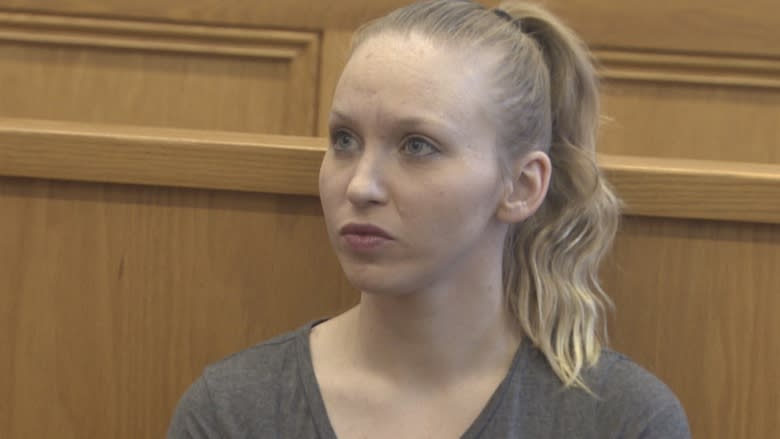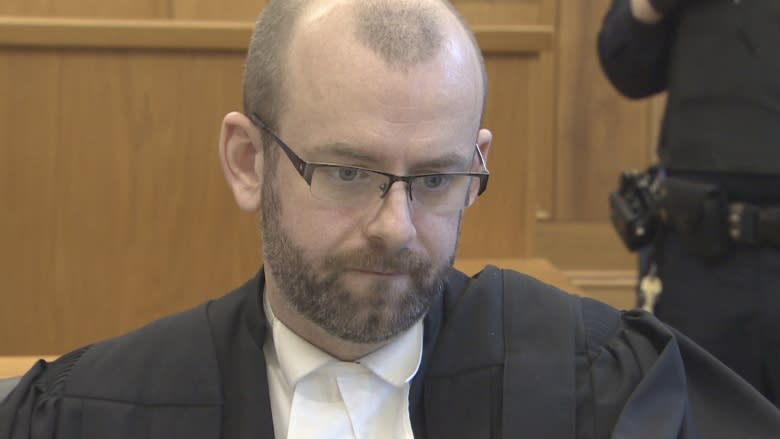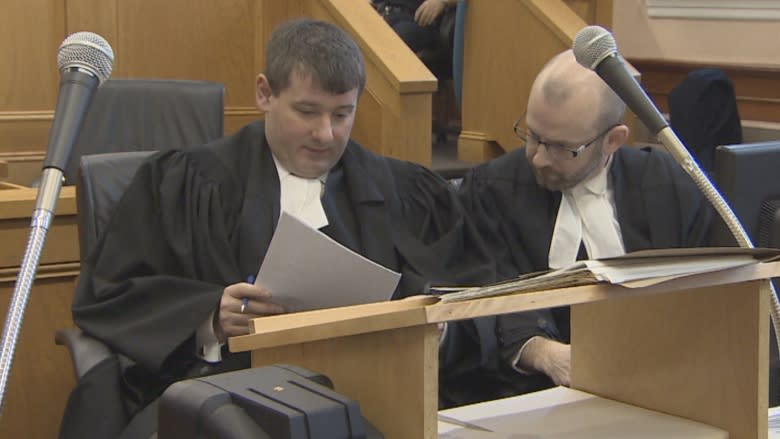Anne Norris didn't act like she was afraid, psychiatrist says during rebuttal
Crown prosecutors in the Anne Norris first-degree murder trial called a second forensic psychiatrist to the witness stand on Monday who testified her behaviour did not seem like someone who was afraid of Marcel Reardon.
Dr. Jasbir Gill began testifying around noon, as the trial entered its 16th day.
Gill told the Supreme Court jury that she saw Norris briefly at the lockup in April 2016 and has reviewed medical files and police statements, but Norris declined to be interviewed by Gill.
Norris, 30, has admitted to killing Reardon on May 9, 2016, by hitting him repeatedly in the head with a hammer and placing his body under the steps of Harbour View Apartments, where she lived.
On Monday, Gill said she felt Norris was bipolar or had a borderline personality disorder.
She said there was little objective evidence that Norris had delusions as intense as she described to psychologist Randy Penney and Dr. Nizar Ladha.
Norris told Ladha at points that she knew Reardon was a dangerous man, and feared he would kill her in her sleep that night.
But Gill said given what Norris claimed she knew about Reardon, her behaviour — getting into a taxi with him and going to her apartment — is inconsistent with what Norris reported as intense fear.
In her conclusions, Gill also said there are a number of factors to suggest a "reality-based motivation" for Norris's actions.
"I think that anger regarding her original sexual abuse, intolerable feelings of abandonment, and intense difficulty coping with the trajectory of her life afterwards is a very plausible explanation," Gill said in her report.
Norris filed a complaint with police in 2011, alleging that she had been sexually abused from the ages of 13 to 17 by a basketball coach. The investigation was later suspended at the request of her family, who became increasingly concerned about her mental health.
Difficulty with rules, says Gill
When court resumed for the afternoon session on Monday, Crown Jeff Summers asked Gill to go through what she noted in Norris's medical files.
Gill told the court that there was a history of fluctuating behaviours — Norris reported she was assaulted, fearful, paranoid, and then the next moment medical staff noted she was jovial and social with other patients.
In addition, Gill said it appeared there was strain between Norris and her family, and her parents being out of the country at times appeared to be a particular strain for Norris.
Hospital staff in Norris's file also noted she had a difficulty following rules, and became angry when she was once advised of the no-smoking policy on a ward.
Gill said the notes state that Norris became angry and aggressive, punching a wall, resulting in her being placed in seclusion.
The way Norris self-reported her delusions to Ladha and Penney also didn't coincide with what Gill observed in the notes.
Gill did say that the best way to review that information would be an interview with Norris herself, but she was unable to do so.
Diagnosis of schizophrenia
The 12-person jury last week heard from Dr. Ladha, the psychiatrist who, at the request of the defence team, did an assessment of Norris.
Ladha, who is the division head of forensic psychiatry at Eastern Health, said his diagnosis for Norris was that she had schizophrenia, in his opinion was delusional and that her "uncontrolled frenzied violence" was due to her mental illness.
Gill and Ladha are the only two forensic psychiatrists in Newfoundland and Labrador.
Through cross-examination, Crown Iain Hollett pointed out that Ladha asked Norris in September 2016 how she had felt the night she killed Reardon.
He had also reviewed Norris's history as provided by her parents, and Norris's own statements to police, but did not seek to review any other witness statements.
During cross-examination, Ladha said Norris did understand that hitting someone repeatedly with a hammer would injure or kill them, but she did not comprehend the overall consequences.
Crown Jeff Summers wrapped his questions for Gill Monday afternoon. Jurors were dismissed to return Tuesday at 10 a.m.
The trial started Jan. 22, and was originally slated for four weeks, but Justice William Goodridge advised the jury that they would likely be sitting through the week of Feb. 19.
Follow along with the latest developments inside the courtroom in our live blog.





